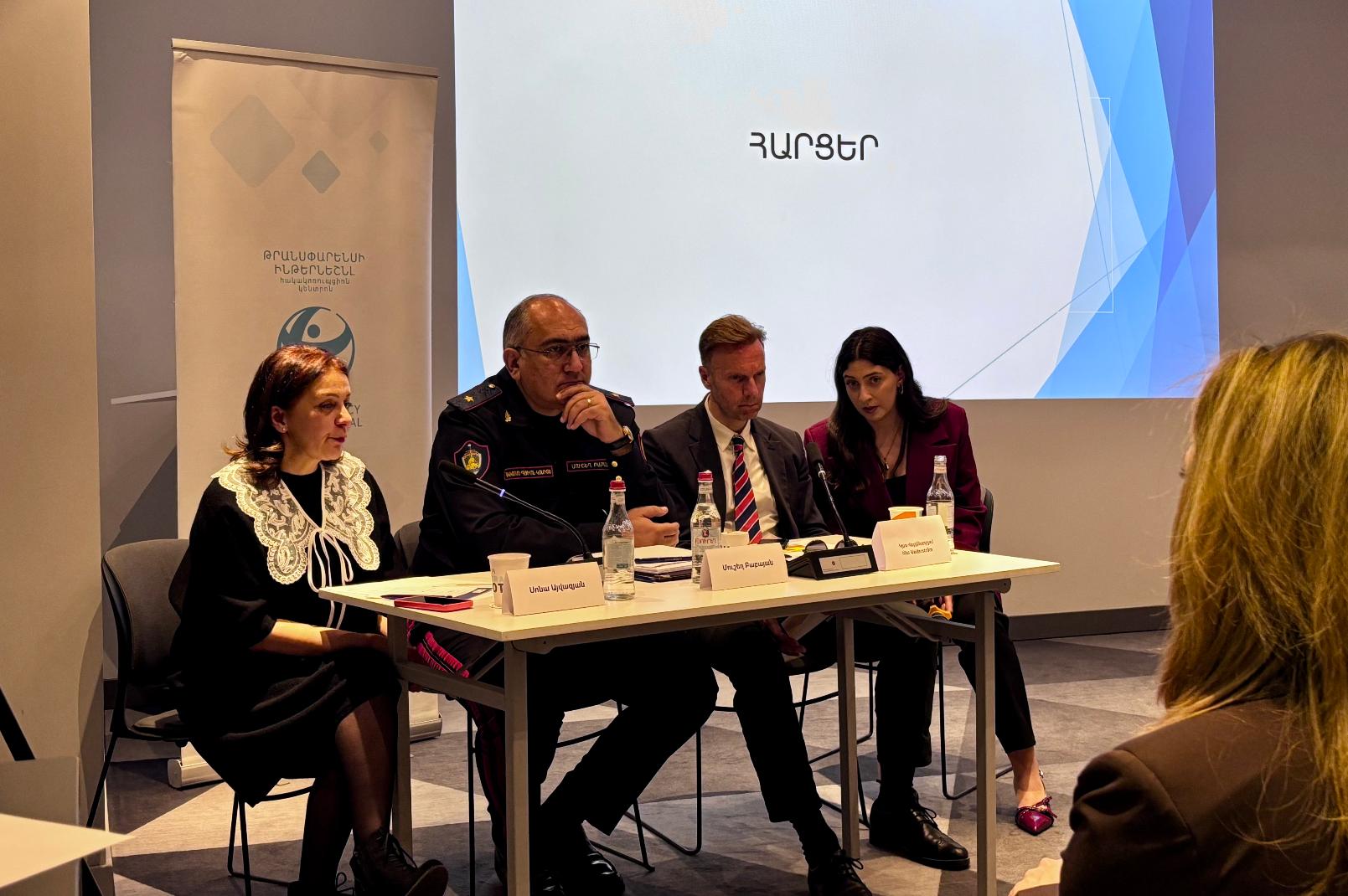
New Transparency International Report: Lack of Financing Hampers Anti-Corruption Efforts in Armenia
Armenia's Transparency International Anti-Corruption Center (TIAC), at a press conference in Yerevan today, presented its findings regarding the work Armenia’s Corruption Prevention Commission (CPC) has conducted in battling corruption in Armenia.
TIAC Executive Director Sona Ayvazyan noted that this is the second report by the organization that has evaluated the work conducted by anti-corruption agencies in Armenia. In 2024, with the support of the Swedish government, a report of the activities of the CPC was published.
In his remarks today, Klas Waldenström, Head of the Development Cooperation Department of the Swedish Embassy in Yerevan, noted that corruption is not an inevitable obstacle, but a challenge that can be overcome.
“We appreciate Armenia’s efforts in strengthening anti-corruption mechanisms, as well as in creating institutions that citizens truly trust,” Waldenström said.
Assessment Results
The research covered the period from the CPC’s formation on October 23, 2021 to December 31, 2023.
The assessment was conducted using a methodology developed by Transparency International, analyzing the CPC’s work across six key dimensions: institutional independence, resource availability, accountability, investigation of corruption crimes, anti-corruption education, and international cooperation.
The overall results of the study showed that:
- The CPC’s independence (72%), international cooperation (70%), and resource availability (63%) received high ratings.
- The process of investigating corruption crimes received an average rating (57%).
- Lower ratings were given for accountability (44%) and anti-corruption education (29%).
In total, forty-eight indicators were considered, of which fourteen received high scores, twenty-three - medium scores, and eight - low scores. It was not possible to assess three indicators.
One of the problematic issues specified relates to CPC financing. In the expenditure section of the state budget, CPC’s expenses are presented as a separate line. Although the actual financing of the CPC has increased compared to 2021, it continues to account for less than 0.1% of Armenia’s state budget expenditures, which is why no score was given for this indicator.
“At the same time, it should be noted that the CPC is not fully resourced to be able to conduct its functions more effectively. Appropriate budgetary allocations are necessary to properly implement the expected functions,” the report states.
The report also highlights the shortcomings of external oversight mechanisms over the activities of the CPC.
For example, while Armenia’s Audit Chamber (an independent agency of the government of Armenia and a successor to the country’s Control Chamber) can exercise oversight over the activities of the CPC, a review of the annual programs and reports for 2021, 2022, and 2023 shows that the audit of the CPC’s activities was not included in the Audit Chamber’s annual programs.
The CPC’s level of prevention, education, and awareness was assessed as the lowest, receiving four out of a maximum fourteen points.
According to the information provided by the CPC, the share of budget expenditures allocated to public awareness and communication programs in the 2021-2023 budgets has decreased. In 2021, it amounted to 0.3%, in 2022 it was 0.2%, and in 2023 it was 0.13%.
In addition, the CPC’s compliance with the sixteen anti-corruption Jakarta Principles developed in 2012 that underline the activities of effective and independent anti-corruption bodies worldwide, found that Armenia’s compliance level was 60.8% (45 points out of a maximum of 74).
Due to external factors, the level of the CPC’s work was assessed at 56.6%, and due to internal factors, it was assessed at 73% and due to performance indicators, it was assessed at 41.1%.
TIAC legal expert and researcher Anush Hakobyan noted that the preliminary results of the assessment were presented to the CPC and were discussed by an expert group of civil society representatives. Based on the clarifications received from the CPC and the opinions of independent experts, some adjustments were made to the report.
After today’s presentation of the assessment results, CPC Deputy Chairman Mushegh Babayan emphasized that the study concerns the activities of the CPC prior to December 31, 2023, and that subsequent changer have been made.
“Most of the observations presented were identified and eliminated on our initiative. They were relevant in 2023, and were eliminated in 2024,” Babayan said.
Based on the results of the study, Transparency International has presented forty recommendations to Armenian government, parliament, the CPC, and other state bodies. The recommendations include legislative amendments, improvements and measures aimed at increasing the efficiency of work to battle corruption.
 Videos
Videos Photos
Photos
Write a comment